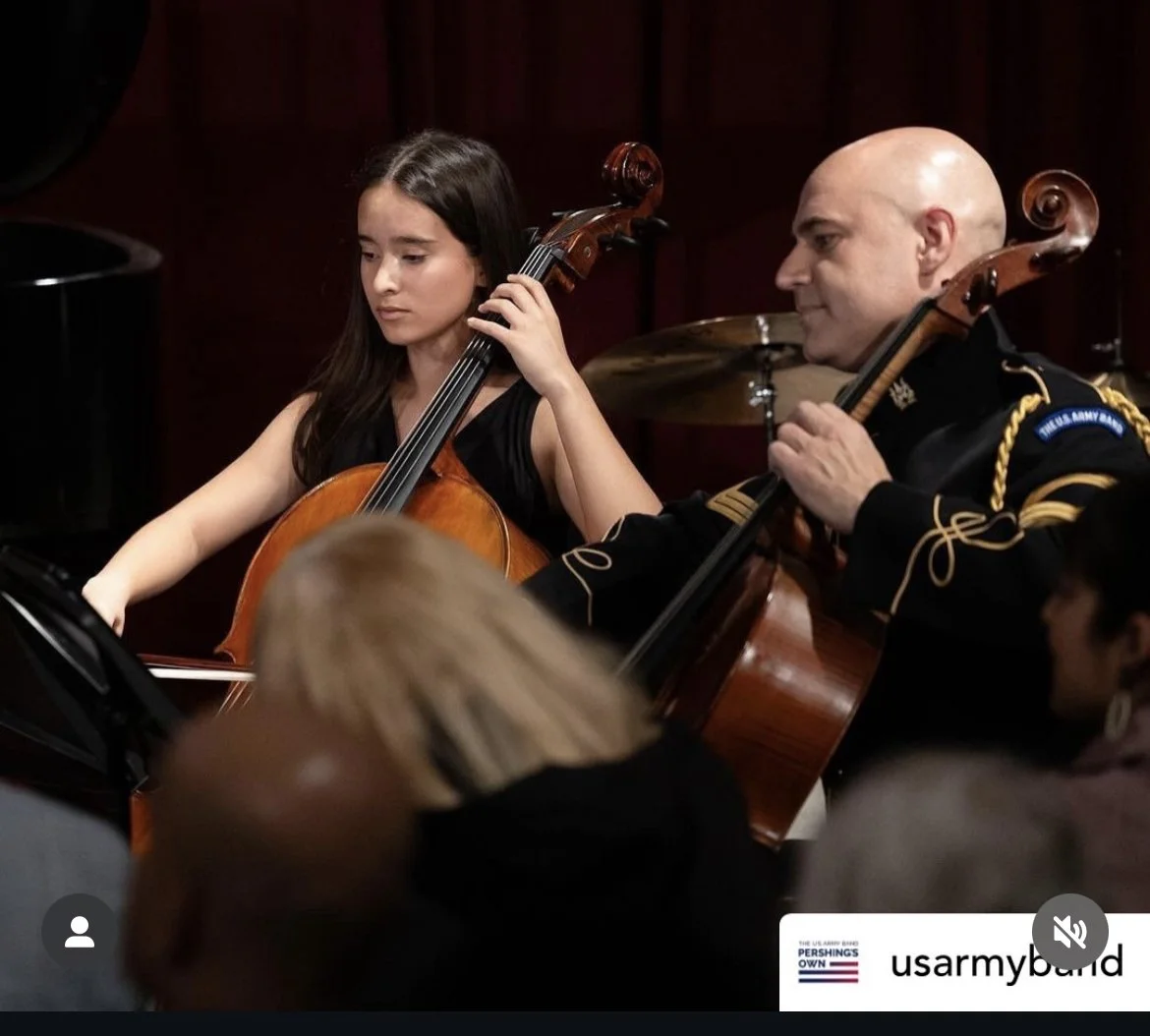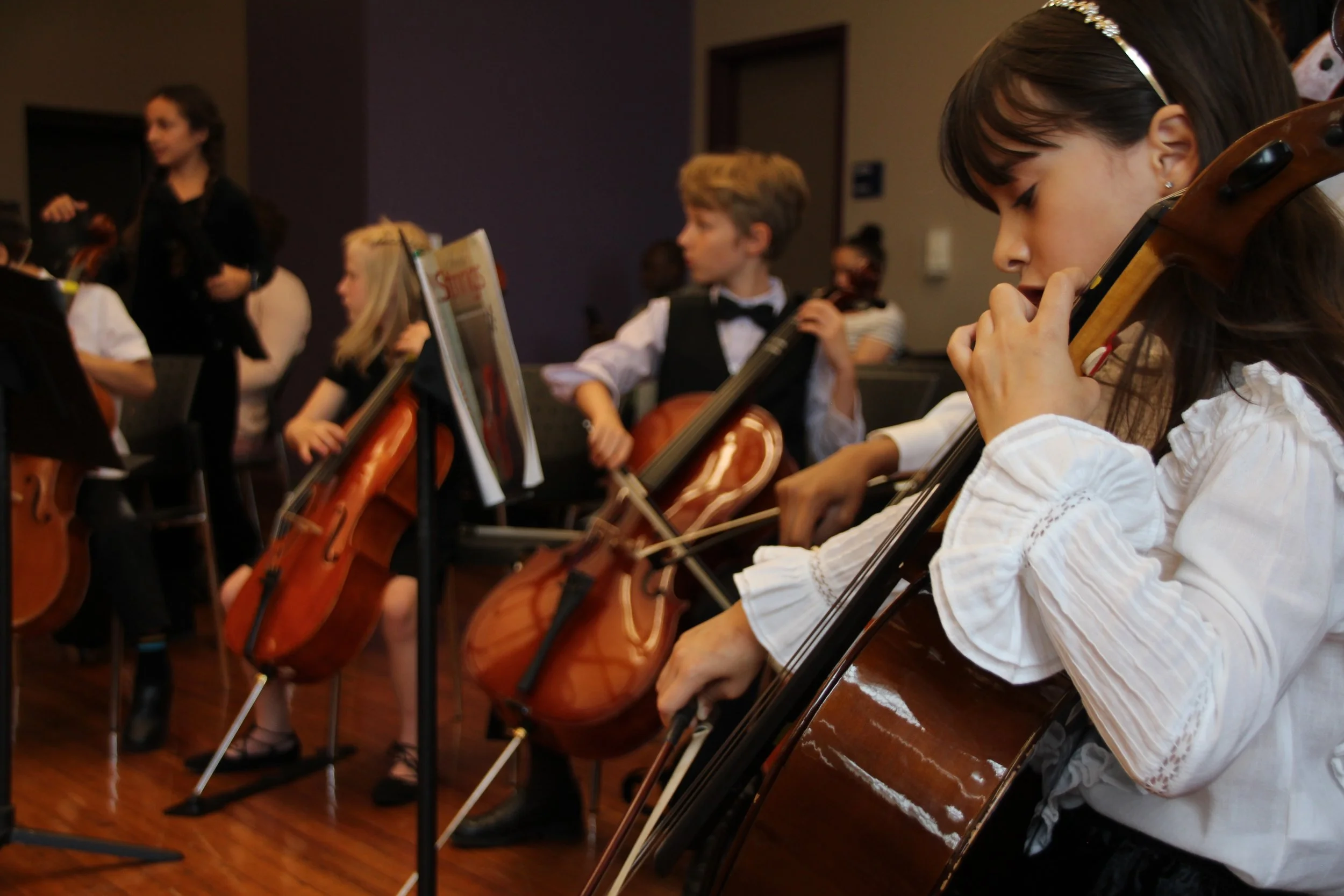Play for Music Education: Potential Amplified
Our mission is to empower D.C.-area families by educating them about music education's transformative benefits, inspiring them to see what's possible, and connecting them to trusted, accessible community music programs.
We achieve this through youth-led performances, educational campaigns, and direct community outreach activities specifically designed to help families who might not otherwise have access understand and engage with local opportunities.
Backed by Data. Powered by Youth. Rooted in Community.
The Problem
D.C. Students Face an Ongoing Post-Pandemic Crisis
Five years after the pandemic, students in Washington, D.C., continue to experience significant academic setbacks, with excessive recreational screen time contributing to the ongoing challenge.
Only 34% proficient in English and 23% in math (2023 PARCC).
In Ward 8, proficiency drops to 13% (English) and 6% (math).
Average daily screen time is now 7.5+ hours, negatively affecting attention, anxiety, social skills, and academic engagement.
While music education isn't a standalone fix, it's a proven strategy to boost academic achievement, improve cognitive and emotional development, and strengthen social skills. Yet, many families remain disconnected from available programs due to real barriers, such as financial constraints, transportation challenges, or demanding schedules, as well as perceived obstacles like limited awareness, misconceptions about costs, or uncertainty about how to get started.
Our initiative aims to bridge some of these gaps, empowering families with the knowledge and practical support they need to navigate and access valuable resources and existing community programs that make music education achievable.
(Sources: University of British Columbia, Harvard University, UCLA, Arts Education Partnership, Northwestern University)
About Us
We are Santi and Avril, students at D.C. public high schools who've spent the past decade studying violin and cello through the DC Youth Orchestra Program and the Washington Musical Pathways Initiative. Having personally benefited from these transformative programs, we founded Play for Music Education as our way of giving back, helping more families experience music's life-changing potential.
We know firsthand that young lives transform when potential meets dedication and opportunity, regardless of a student's background or zip code. By educating parents, the true gatekeepers of musical opportunity, we want to empower families to confidently access existing resources, ensuring more children can experience the sense of belonging, discipline, and achievement that rigorous classical music training provides.
Our Three Part Model
Play for Music Education has a clear, youth-led model designed specifically to address parent awareness gaps and inspire children through youth-led performances and storytelling . We want to ensure music education feels accessible, relevant, and achievable:
Educate
Educate and Demystify: Provide parent workshops, easy-to-use digital resources, scholarship information, and clear guidance highlighting music education’s academic, cognitive, and emotional benefits, breaking down misconceptions about classical music’s accessibility.
Inspire
Inspire through Youth-Led Concerts: Host engaging, interactive performances in community spaces and schools. Through relatable peer representation and storytelling, we model tangible success, inspiring families and showing that music education is within reach.
Connect
Empower Families & Connect to Local Programs: Actively guide parents directly to trusted, accessible programs, like the DC Youth Orchestra Program, Sitar Arts Center, and Levine Music, helping families confidently navigate opportunities.
Why Music Education?
In this section, you will learn about the numerous benefits and skills your child will develop through playing an instrument.
-
24% higher high school graduation rates for music students
The equivalent of about one academic year ahead of their peers in English, mathematics, and science skills, as measured by their exam grades.
+25% increased brain connectivity linked to improved memory, focus, and cognitive function.
Better Attendance & Engagement: +32% student engagement, -5.9% absenteeism.
-
Time Management: Balancing practice, school, and personal tasks builds discipline and strong organizational habits.
Problem-Solving: Analyzing and mastering challenging pieces teaches structured, strategic thinking.
Adaptability: Performing new music in varied settings helps students comfortably handle unexpected situations.
Critical Thinking: Studying music strengthens observation, analysis, and decision-making skills.
Teamwork: Ensemble playing teaches active listening, effective communication, and collaboration.
Leadership: Ensemble experiences offer students mentorship roles, building confidence and motivation skills.
Reduced Screen Time: Structured music activities naturally decrease recreational screen use, improving attention and social skills.
-
+23% emotional regulation, +30% peer collaboration.
Teamwork through ensemble playing
Confidence through performance
Discipline through practice
Resilience through challenges
-
Transferable Skills
Project management
Team collaboration
Public presentation
Goal achievement
Attention to detail
Performance under pressure
Upcoming events

A Play Plea for Music Education
Your support, whether through financial contributions, in-kind donations, expertise or volunteer efforts, helps bridge the gap for families who might otherwise miss out on these life-changing experiences. Every gift, big or small, makes a difference.


















